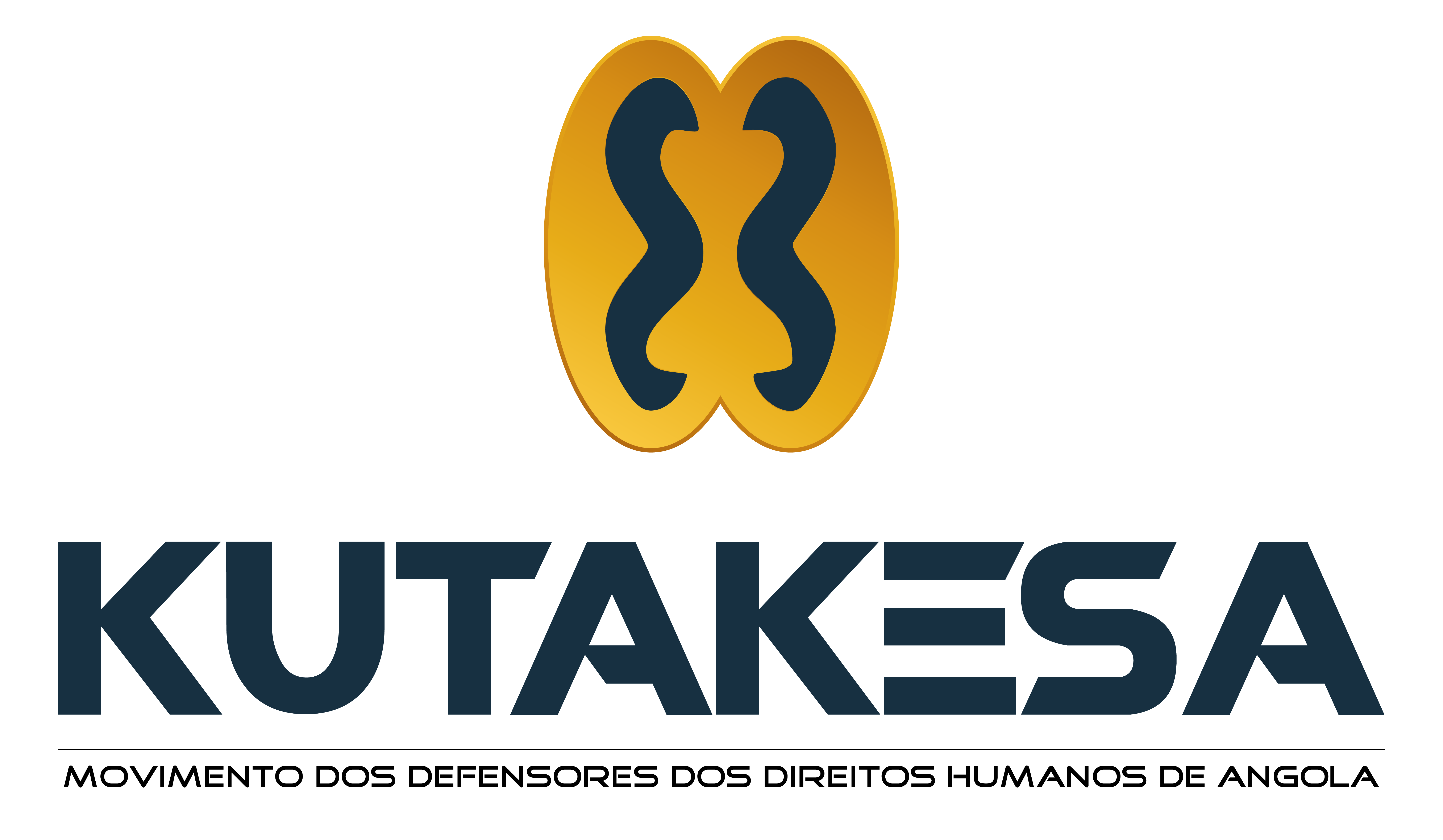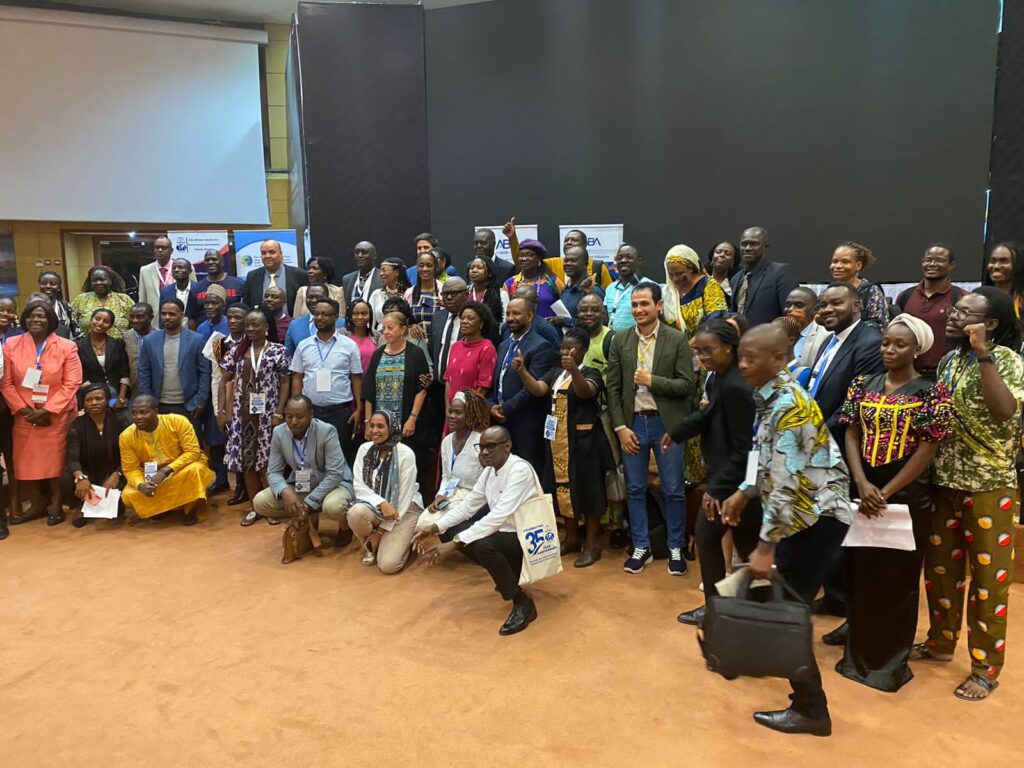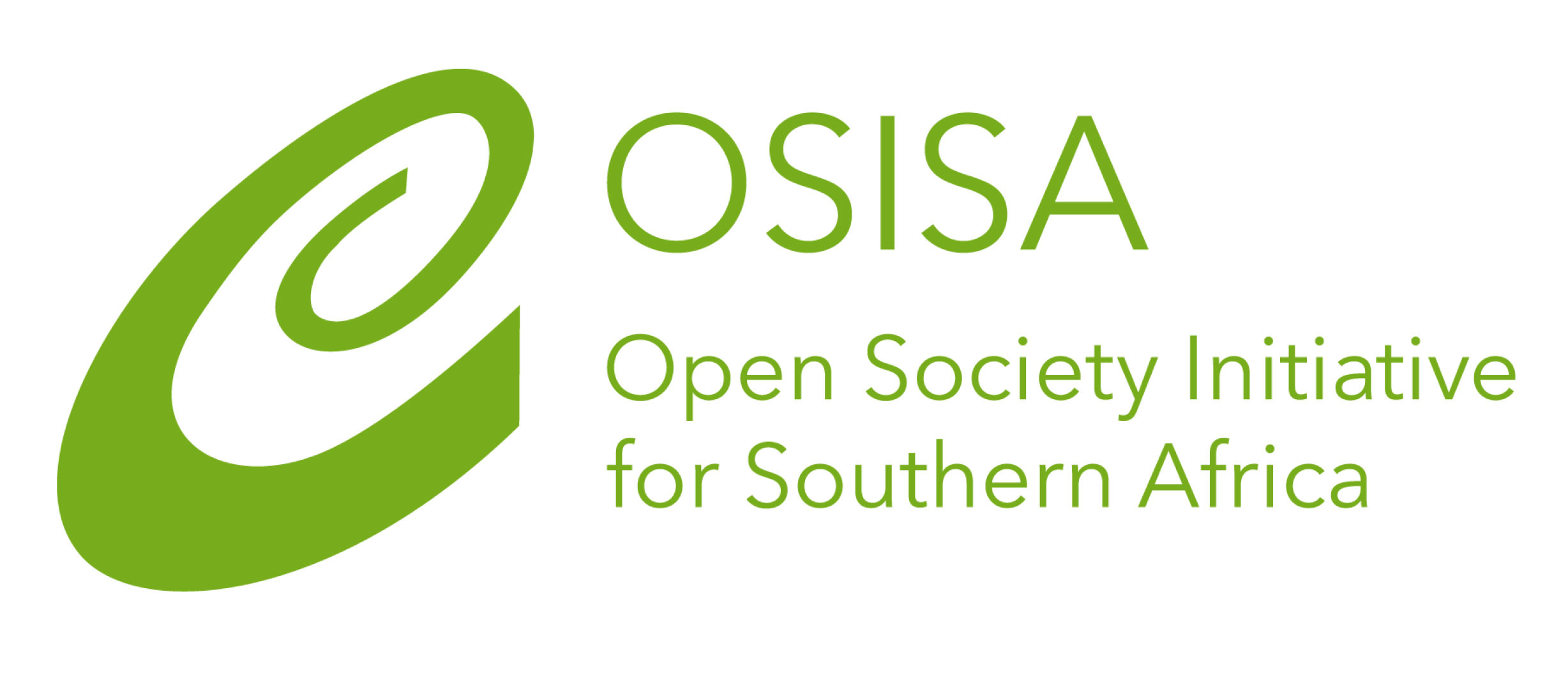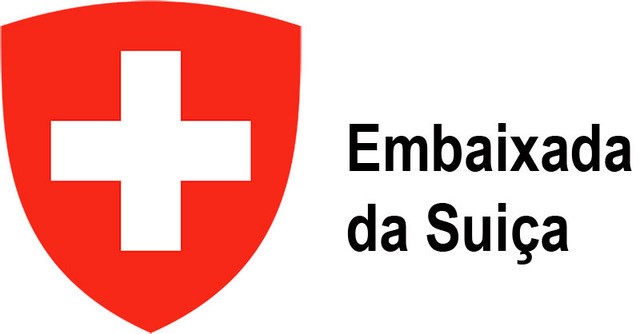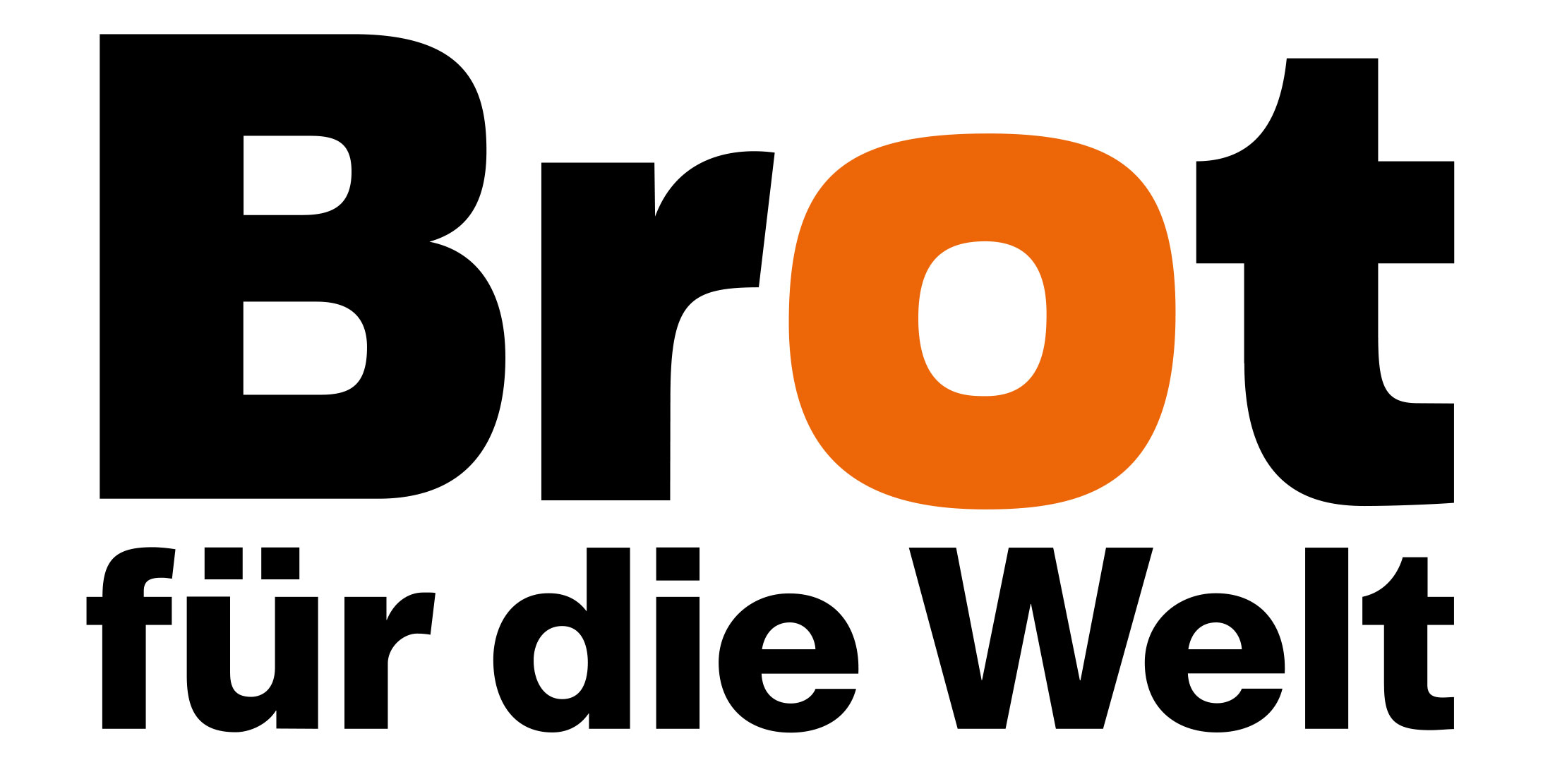TRES/001/10/23: RESOLUTION SUR LES CHANGEMENTS ANTICONSTITUTIONNELS DE POUVOIR EN AFRIQUE
Nous, participants au Forum sur la participation des ONG à la 77ème session ordinaire de la Commission africaine des droits de l’homme et des peuples, tenu à Arusha, en Tanzania, du 16-18 Octobre 2023,
Rappelant le mandat de la Commission Africaine des Droits de l’Homme et des Peuples (CADHP) de promouvoir et protéger les droits de l’homme et des peuples en Afrique en vertu de la Charte Africaine des Droits de l’Homme et des Peuples (Charte Africaine) ; Rappelant les obligations des Etats membres de l’Union Africaine en vertu de la Charte africaine et de la Charte Africaine de la démocratie, des élections et de la bonne gouvernance ;
Guidée par les principes énoncés dans la Charte africaine de la démocratie, des élections et de la bonne gouvernance en son article 3.2 relatif à l’accès au pouvoir et son exercice, conformément à la Constitution de l’Etat et en son article 3.10 sur le rejet et la condamnation des changements anticonstitutionnels ;
Considérant les dispositions de l’article 5 de la Charte africaine de la démocratie, des élections et de la bonne gouvernance qui obligent les Etats parties à prendre les mesures appropriées afin d’assurer le respect de l’ordre constitutionnel, en particulier le transfert constitutionnel du pouvoir ; renforcées par la même Charte en son article 10.1 : « Les Etats parties renforcent le principe de la suprématie de la Constitution dans leur organisation politique » et 12.2 qui appelle les Etats parties à « renforcer les institutions politiques pour asseoir une culture de la démocratie, et de la paix » ;
Considérant l’article 14.1 de la même Charte qui dispose : « Les Etats parties renforcent et institutionnalisent le contrôle du pouvoir civil constitutionnel sur les forces armées et de sécurité aux fins de la consolidation de la démocratie et de l’ordre constitutionnel ».
Rappelant les principes énoncés dans la résolution 213 (CCXIII) 12 de la CADHP sur les changements anticonstitutionnels de gouvernement, qui condamne « les tentatives d’instauration de régimes autocratiques et les changements anticonstitutionnels de gouvernement sur le continent, actes qu’elle considère comme une grave menace pour la stabilité, la paix, la sécurité, le développement et la protection des droits de l’homme »
Rappelant la Résolution 564 (LXXVI) 2023 de la CADHP sur la résurgence des changements anticonstitutionnels de gouvernement en Afrique, dans laquelle la CADHP s’était montrée préoccupée par la résurgence des changements anticonstitutionnels de gouvernement avérées, au Tchad, au Mali, en Guinée, au Burkina Faso, au Soudan et au Niger et exhortait d’une part « tous les États africains à se conformer pleinement aux dispositions de la Charte africaine de la démocratie, des élections et de la gouvernance et à la charte africaine des droits de l’homme et des peuples » et d’autre part la CEDEAO à «privilégier les méthodes pacifiques en vue de préserver la sécurité des populations dans la résolution de la situation au Niger »
Rappelant que « Tout putsch ou coup d’Etat contre un gouvernement démocratiquement élu, toute intervention de mercenaires, toute intervention de groupes dissidents armés ou de mouvements rebelles pour renverser un gouvernement démocratiquement élu, tout refus par un gouvernement en place de remettre le pouvoir au parti ou au candidat vainqueur à l’issue d’élections libres, justes et régulières, tout amendement ou toute révision des Constitutions ou des instruments juridiques qui porte atteinte aux principes de l’alternance démocratique sont constitutifs de changement anticonstitutionnel de gouvernement » au terme des dispositions de la Charte Africaine de la Démocratie, des élections et de la bonne gouvernance.
Déplorant particulièrement les effets néfastes des changements anticonstitutionnels sur les jeunes démocraties africaines et le choc psychologique, économique et sécuritaire portés à l’endroit des populations, particulièrement les femmes, les jeunes et les enfants. Le Forum des ONG demande à la Commission Africaine des droits de l’Homme et des Peuples à :
Condamner tout changement anticonstitutionnel de pouvoir, y compris au Mali, au Burkina Faso, en Guinée, au Niger et au Gabon.
Exhorter les Etats parties au respect des dispositions de l’Acte constitutif de l’Union Africaine, la Charte Africaine des droits de l’homme et des peuples, la Charte Africaine de la démocratie, des élections et de la bonne gouvernance.
Appeler à un retour définitif de la gouvernance constitutionnelle par le biais d’un régime civil dans tous les États sous gouvernance militaire de transition et conformément au chronogramme établi en commun accord avec les institutions sous régionales
Fait à Arusha, le 18 octobre 2023
TRES/002/10/23: RESOLUTION ON THE HUMAN RIGHTS SITUATION IN THE CONTEXT OF ELECTIONS IN AFRICA
We, the participants in the Forum on NGO Participation in the 77th Ordinary Session of the African Commission on Human and Peoples’ Rights held in Banjul, The Gambia, from 16th -18th October 2023 in Arusha Tanzania 2023,
Considering the Constitutive Act of the African Union adopted in Lomé on the 11th July 2000 and in particular its Articles 3(g)(h), 4(m)(p) and 30, on the promotion and the protection of human and peoples’ rights, on the respect for democratic principles, on the condemnation and rejection of unconstitutional changes respectively;
Recalling the provisions of the African Charter on Democracy, Elections and Governance, and the Economic Community of West African States (ECOWAS) Protocol on Democracy and Good Governance that promote the values and principles of democracy, good governance and human rights;
Recalling its African Union Resolution ACHPR/Res. 564 (LXXVI) of 4 August 2023 on the resurgence of unconstitutional change of Governments in Africa;
Recognizing the importance of free, fair, transparent, and peaceful elections as a fundamental component of democratic governance and the protection of human rights;
Concerned about the extended tenure of presidents in power in some African countries which has raised concerns about democratic governance and the rotation of leadership;
Concerned about the unconstitutional changes of governments, including in Gabon, Niger, Burkina Faso, Chad, Mali, Guinea and Sudan which aggravate the security situation and lead to human rights violations;
Expressing concern over the irregularities observed in recent elections in Zimbabwe, and noting the need for enhanced electoral transparency and integrity but also respect for civic participation in democratic processes before, during and after elections; Expressing concern over reports of challenges and issues related to the electoral processes in the Democratic Republic of Congo (DRC), Senegal, Rwanda, Mozambique, and South Africa, including concerns about voter registration, access to polling stations, voter intimidation, restrictions on political opposition, and freedom of expression, including press freedom;
Noting with deep concern the restrictions to democratic space and the security situation in the DRC, in particular in the Eastern part of the country, which pose challenges to the holding of elections;
Worried about the current political and economic crisis in South Africa, which has exacerbated social tensions and economic hardships, and recognizing the potential that the upcoming elections may further accentuate these challenges, leading to increased instability in the country;
Concerned about the political situation in Senegal, where restrictions to political space and human rights violations have been recently reported in the run-up of for general elections;
Concerned about the continuous attacks on democracy in Rwanda, particularly against journalists and activists, by an authoritarian regime in power since the 90’s, while general elections are scheduled for 2024;
Concerned about the shrinking space for human rights defenders in Mozambique ahead of the 2024 general elections, including threat to freedom of association.
The NGO FORUM adopt this resolution to call the ACHPR to :
- Urge the governments of the DRC, Senegal, Rwanda, Mozambique, and South Africa to uphold their commitments to democratic values and the rule of law, and to ensure that the upcoming elections are conducted in a free, fair, transparent, inclusive and peaceful manner, in accordance with their respective national laws and international human rights standards;
- Call upon the governments of these countries to guarantee the rights to freedom of expression, association, and assembly, and to create an enabling environment for civil society organizations, media, and opposition political parties to participate actively and meaningfully in the electoral processes;
- Recommend that the governments take all necessary measures to prevent voter intimidation, violence, or any form of electoral malpractice, and to hold accountable those responsible for any violations of human rights before, during and after the elections;
- Call upon the governments to facilitate the participation of international, regional and national observers and to cooperate with these observers to ensure a transparent and credible electoral process;
- Strongly condemn all coups and any unconstitutional changes of government in Africa and call for the immediate restoration of constitutional order and respect for the principles of democracy and human rights;
- Express concern over the irregularities observed in recent elections in Zimbabwe, including the detention of electoral observers, reports of voter intimidation, threats of violence, as well as incidents of harassment and coercion, and urge the government to take concrete steps to enhance electoral transparency, integrity, and inclusivity in future elections;
- Express concern about the extended tenure of presidents in power in some African countries, and call for a review of constitutional term limits and the promotion of democratic transitions;
- Request the African Union, the Economic Community of West African States (ECOWAS), and other relevant regional and sub-regional bodies to support and monitor the electoral processes in the aforementioned countries and to provide assistance as needed;
- Request the ACHPR to continue monitoring the human rights situation in the Democratic Republic of Congo (DRC), Senegal, Rwanda, Mozambique, South Africa, Zimbabwe, Gabon, Mali, Guinea and Burkina Faso during the electoral period and transitional process and to provide regular updates to the African Union and relevant stakeholders;
- Call upon the governments to respect the outcomes of the elections and to peacefully transfer power in accordance with their respective constitutional provisions and international norms;
- Express its commitment to assisting the governments and civil society organizations in these countries in promoting and protecting human rights, democracy, and the rule of law.
Done in Arusha, Tanzania. 18th October, 2023
TRES/003/10/23: RESOLUTION ON THE PROTECTION AND PROMOTION OF THE RIGHTS OF COMMUNITIES DISCRIMINATED BASED ON WORK AND DESCENT
We, the participants in the Forum on NGO Participation in the 77th Ordinary Session of the African Commission on Human and Peoples’ Rights held in Banjul, The Gambia, from 16th -18th October 2023 in Arusha Tanzania 2023,
Recalling its mandate to promote and protect human and peoples’ rights in Africa under Article 45 of the African Charter on Human and Peoples’ Rights (the African Charter);
Considering the Constitutive Act of the African Union (AU) adopted in Lomé on 11 July 2000, and in particular its articles 3(h) and 4(m) on the promotion and protection of human rights and the respect for democratic principles, the rule of law and good governance;
Noting the Aspiration 3 of the Agenda 2063 calling for an African Continent where democratic values, culture, practices, universal principles of human rights gender equality, justice and the rule of law are entrenched, where citizens participate actively in the social, economic and political development and management, and that has capable institutions and transformative leadership in all fields (political, economic, religious, cultural, academic, youth and women) at the continental, regional, national and local levels;
Recalling also that Article 2 of the African Charter prohibits any form of discrimination against any person on the basis of race, ethnicity, colour, sex, language, religion, political or other opinion, national or social origin, property, birth or other status;
Further recalling that Article 3 of the African Charter grants equal protection of the law to all; Noting that Article 5 of the African Charter recognises that every individual shall have the right to the respect of the dignity inherent in a human being and that all forms of exploitation and degradation, particularly slavery, slave trade, torture, cruel, inhuman or degrading punishment and treatment shall be prohibited;
Noting further that Article 14 of the African Charter recognises that every individual shall have the right to work under equitable and satisfactory conditions and shall receive equal pay for equal work;
Recalling Article 28 of the African Charter that clearly states that “every individual has the duty to respect and consider his fellow beings without discrimination, and to maintain relations aimed at promoting, safeguarding and reinforcing mutual respect and tolerance”; Strongly troubled by the persistence, despite the adoption and ratification of human rights treaties, the enactment national constitutions and national laws, of abject practices of discrimination based on work and descent, including discrimination based on caste, and analogous systems of traditional and modern forms of slavery, inherited status and untouchability, as violations of human rights and international law;
Acknowledging that discrimination based on work and descent is widespread across the African continent, and that multiple, aggravated and intersecting forms of discrimination impact women, children and youth, persons with disabilities and those of diverse sexual orientation and gender identity, which makes them more vulnerable to denial of their human rights on an equal basis with others
Strongly deploring acts of violence, untouchability and segregation committed against persons on the basis of work and descent, as well as acts of sexual and gender-based violence predominantly committed against women and girls from communities discriminated on the basis of work and descent;
Recalling that the Sustainable Development Goals seek to realize the human rights of all and leave no one behind, in particular, communities and individuals that are most marginalized such as those that have historically, and continue to, suffer discrimination based on work and descent;
Reaffirming the Africa we want to build is free from all forms of discrimination including that of discrimination based on work and descent;
Noting the lack of human rights standard setting that addresses discrimination based on work and descent;
Concerned, however, at the persistence of discrimination based on work and descent almost 40 years after the operationalization of the African Charter
The Commission:
- Calls upon States Parties to acknowledge the existence of discrimination based on work and descent as a distinct form of discrimination that deserves the attention of the
African community and that which affects peoples across Africa;
- Further calls upon States Parties to take all necessary constitutional, legislative, administrative, budgetary, judicial, educational, and social measures to eliminate discrimination based on work and descent in their respective states and to respect, protect, promote, restitute, implement and monitor the human rights of those facing this discrimination including through robust disaggregated data collection in line with data protection and data privacy principles;
- Urges States Parties, in collaboration with National Human Rights Institutions, civil society organizations and human rights defenders belonging to communities discriminated based on work and descent to combat prejudicial beliefs and practices in all their forms, including notions of untouchability, pollution and caste superiority or inferiority, as well as to prevent human rights violations taken on the basis of such beliefs;
- Requests the Africa Commission on Human Peoples Rights to initiate a process to realize a continental study on the situation of communities discriminated based on work and descent to be shared with the African Union organs and institutions;
- Decides to establish a Working Group on Discrimination Based on Work and
Descent, composed of Members of the African Commission on Human and Peoples’ Rights, with the participation of representatives of communities discriminated on the basis of work and descent, to study further the practices of discrimination based on work and descent in the African region and their impact on the realization of human rights under the African Charter, with the aim of developing further interventions to prevent discrimination based on work and descent.
Done in Arusha, Tanzania. 18th October, 2023
TRES/004/10/23: RESOLUTION SUR LA LIBERTE DE LA PRESSE EN FRIQUE
Nous, participants au Forum sur la participation des ONG à la 77ème session ordinaire de la Commission africaine des droits de l’homme et des peuples, tenu à Arusha, en Tanzania, du 16-18 Octobre 2023,
Rappelant le mandat de promotion et de protection des droits de l’homme en Afrique de la Commission, en vertu de la Charte africaine des droits de l’homme et des peuples (la Charte);
Rappelant également la Résolution N°54 de 2001 de la CADHP sur la Liberté d’Expression qui, note avec « inquiétude la violation fréquente de ce droit par les Etats Parties à la Charte Africaine par le harcèlement, l’arrestation et la détention arbitraires de journalistes, la persécution des organes d’information jugés critiques envers l’ordre établi, par les cadres juridiques inadéquats de régulation des médias électroniques, en particulier la radiodiffusion, ainsi que par le droit civil et le droit pénal qui inhibent le droit à la liberté d’expression » et reconnaissant que « la liberté d’expression est un attribut essentiel de l’existence humaine dans toutes les sphères de la vie et que le rôle cardinal de la liberté d’expression dans le développement de l’homme est désormais mondialement reconnu ;
Considérant en outre les obligations des États parties en vertu de l’article 1 de la Charte africaine et des dispositions pertinentes découlant des instruments régionaux et internationaux des droits de l’homme, notamment celle de garantir la liberté de presse, l’accès à l’information, la diffusion de l’information auprès des populations ;
Reconnaissant l’importance de la contribution des journalistes, d’une part et de internet d’autre part à la promotion et la protection des droits de l’homme et des peuples, la démocratie, l’État de droit, la consolidation de la paix et le développement entre autres en Afrique;
Condamnant particulièrement , l’intimidation, détention arbitraire, le harcèlement judiciaire contre des défenseurs des droits de l’homme au Niger dont le dernier cas est l’enlèvement et la détention pendant plus de 10 jours puis la libération sous contrôle judiciaire de Mme Samira Sabou, journaliste indépendante et blogueuse, poursuivie désormais pour “production et diffusion des données de nature à troubler l’ordre public” après des analyses sur la situation au Niger .
Condamnant la poursuite du harcèlement judiciaire, les menaces et actes d’intimidation au Mali contre Madame Aminata Dicko, vice-présidente de l’Observatoire Kisal, Monsieur Malick Konaté Journaliste activiste, tous deux forcés à l’exil ; et d’autre part les détentions arbitraires de Mohamed Youssouf Bathily alias Rasbath, Chroniqueur, de Mme Sidibé Rokia Doumbia militante contre la vie chère au Mali, de Adama Ben Diarra responsable de Yerewolo Debout sur les remparts et ancien soutien du régime militaire, tous les deux écroués en prison pour avoir critiqué les autorités de la Transition, en violation des procédures et du droit au procès équitable ;
Gravement préoccupé par les assassinats restés impunis des journalistes Martinez Zogo, Ola Bebe, Wazizi, et Annde Nsoh, au Cameroun et de Joel Mumbere Musavvuli, Barthélémy Kubanabandu Changamuka, Héritier Magayane, en RDC , ains que l’assassinat en février dernier de Souvi Ould Jibril Ould Cheine. , Activiste et Blogueur
Mauritanien décédé dans les locaux du commissariat de police N°2 de Dar Naim, Nouatchott, suite à son interpellation par la police ;
Condamnant les coupures de la connexion internet comme représailles pendant le déroulement des élections à l’instar de ce qui s’est passé au Gabo ou comme forme de gestion des troubles à l’exemple des mesures imposées par les autorités sénégalaises en juin 2023 ;
Gardant à l’esprit l’article 58 de la Charte africaine des droits de l’homme et des peuples qui stipule que « Lorsqu’il apparaît à la suite d’une délibération de la Commission qu’une ou plusieurs communications relatent des situations particulières qui semblent révéler l’existence d’un ensemble de violations graves ou massives des droits de l’homme et des peuples, la Commission attire l’attention de la Conférence des Chefs d’État et de Gouvernement sur ces situations ».
Le Forum des ONG demande à la CADHP de :
Condamner vigoureusement les menaces, assassinats et représailles à l’encontre des journalistes blogueurs et journalistes en ligne en Afrique ;
Urger les Etats à la libération immédiate et sans condition avec abandon des charges de tous les journalistes, blogueurs et journalistes en ligne détenus dans le cadre de l’exercice de leur fonction et d’enquêter systématiquement sur, ces assassinats, les menaces et les représailles à leurs encontre en vue de traduire les coupables en justice et d’assurer aux victimes des réparations financières, matérielles et psychologiques adéquates;
Exhorter les Etats-Parties de demander à leurs gouvernements de respecter les instruments de promotion et protection des droits humains régionauxet internationaux librement ratifiés et les décisions de la CADHP notamment sur les journalistes, les blogueurs, l’accès à l’information et à internet en toute circonstances.
Exhorte les Etats membres à abroger toutes les dispositions légales répressives de la diffamation et des délits de presse et de privilégier des sanctions civiles lorsque cela est nécessaire
Appeler les Etats membres à mettre en place des programmes d’éducation au numérique, aux médias et à l’information dans les écoles et les centres de formation en journalisme et au profit des professionnels des médias et des citoyens
Appeler les Etats membres à adopter des lois d’accès à l’information à travers des processus inclusifs et transparents impliquant tous les acteurs, y compris la société civile et les médias ;
Appeler les Etats membres à mettre fin aux mesures administratives de suspension, de fermeture des blocages multiples contre des médias critiques, surtout des mesures prises par les entités gouvernementales et administratives en dehors des organes attitrés de régulation
Demander aux Etats membres de garantir l’indépendance des organes de régulation et la non-intrusion des gouvernements dans la régulation des médias ainsi que l’autorégulation et veiller à ce que les processus de régulation des réseaux sociaux soient inclusifs et transparents et résultent des consultations entre tous les acteurs ;
Appeler les Etas membres à garantir la sécurité et la protection des journalistes dans l’exercice de leur travail, et faciliter l’accès à l’information, en prenant en compte la situation spécifique des femmes journalistes, en particulier durant les tensions politiques, les pandémies et les élections ;
Veiller à ce que les pays en transition politique suite à des coups d’Etat (Mali, Guinée,
Burkina Faso, Niger) garantissent l’indépendance des médias et mettre fin à l’état de non information créé par la fermeture de certains médias, l’intimation et des arrestations contre des journalistes et d’autres mesures punitives à l’encontre de la presse.
Fait à Arusha, le 18 octobre 2023
TRES/005/10/23: RESOLUTION ON WOMEN HUMAN RIGHTS DEFENDERS (WHRDS) IN AFRICA
We, the participants in the Forum on NGO Participation in the 77th Ordinary Session of the African Commission on Human and Peoples’ Rights held from 16th -18th October 2023 in Arusha Tanzania 2023,
Recalling the African Commission on Human and People’s Rights (African Commission) Resolution, ACHPR/Res. 230 (LII), adopted on 12 October 2012, to assess the extent and degree of the difficulties routinely faced by women human rights defenders in Africa.
Mindful that the African Commission has been seized with the situation of Women Human Rights Defenders (WHRDs) recorded since 2003 and began developing its jurisdiction on issues of protection of HRDs.
Underscore, the first UN General Assembly Resolution on the protection of WHRDs in December 2013, highlighting that WHRDs draw more hostilities and stigma than their male colleagues, because they challenge the cultural, religious and discriminatory norms or practices that condone gender-based violence.
Considering that, 2023 is a landmark year, commemorating the 25th anniversary of the adoption of the HRDs Declaration and 20 years since the adoption of the Maputo Protocol.
Disheartened, the persisting relative invisibility of WHOs experiences although seventy
(70) out of the6 multiple human rights complaints communicated between 2004-2009 to
State Parties by the Un Special Rapporteur concerned WHRDs
Acknowledge, progress in ACHPR established Special Rapporteur on Human Rights Defenders (SR- HRDs) in Africa in 2004 with mandate to develop and make recommendations and effective strategies to better promote and protect HRDs
Additionally, existing several protection mechanisms for WHRDs within the African system of human rights, including Special Rapporteur on the Rights of Women in Africa, Special Rapporteur on Freedom of Expression and Access to Information in Africa, among others and the apex regional framework promoting specific protection of women in Africa – African Charter on Human and People’s Rights Protocol on the Rights of Women in Africa (Maputo Protocol), including other global human rights instruments give wide political, social, economic protection of women, such as Convention on the Elimination of all form of Discrimination against Women
Reiterates, African Commission Report Study on the Situation of WHRDs in Africa adopted during its Extra Ordinary Session in March 2014, emphasized specific protection for WHRDs against all forms of violence and discrimination
Inspired, by the ACHPR Special Mandate Holder established WHRDs Advisory Committee for concrete collaboration to better promote and protect WHRDs by playing instrumental roles in the designing analysis, reviewing data, literature, reports, documentation, in assisting the preparation and drafting of the said report
Welcomes, African Commission Report Study on the Situation of WHRDs in Africa recommendations directed to State Parties as the primary duty bearers to end impunity and reprisals against WHRDs in Africa, and none state actors with responsibilities to protect WHRDs, including national human rights institutions, CSOs, donor partners, coalitions, networks and WHRDs
Recognize: multifaceted approaches by all stakeholders, including African Commission in the monitoring, dialogues awareness raising capacity building, research, women participation in developing concrete protection measures to end impunity and reprisals of WHRDs.
Reviewing, and updating the study outcome and developing a model law to better protect WHRDs at local, national and regional levels.
Recommending ACHPR to
- Establish a support group to the SR on HRDs focusing on WHRDs, update and the implementation of the outcome of the report.
- Identifying implementation progress of the outcome report, including best practice model, adopted by state parties, NHRIs, WHRDs-CSOs, Networks, coalition and partners.
- Cooperation with SR HRDs to Fast-track comprehensive implementation of the study outcome including identifying the gaps, progress obstacles impeding protection of WHRDs and develop plan of actions for better protection.
- Include collaboration, increasing awareness sensitization, capacity building to end the structural, institutionalized, and socialized, double stigma, discrimination, violence facing WHRDs in Africa at local, national and regional levels.
- Increase advocacy intervention for development of national models laws to provide access to justice, protection of WHRDs at local, national and across region
Done in Arusha, Tanzania. 18th October, 2023
TRES/006/10/23: RESOLUTION ON THE NEED TO PROTECT CIVIC SPACE FREEDOM OF ASSOCIATION AND ASSEMBLY IN AFRICA
We, the participants in the Forum on NGO Participation in the 77th Ordinary Session of the African Commission on Human and Peoples’ Rights held from 16th -18th October 2023 in Arusha Tanzania 2023,
Recalling the ACHPR’s mandate to protect and promote human and peoples’ rights in Africa under Article 45 of the African Charter on Human and Peoples’ Rights (the African Charter)
Considering Article 1 of the African Charter which calls on State Parties to this Charter to adopt legislative or other measures in order to implement the rights and freedoms guaranteed by the Charter
Recalling also its Resolutions ACHPR/Res. 69 (XXXV) 2004 and ACHPR/Res.119 (XXXXII) 2007 on the situation of human rights defenders in Africa, Resolution ACHPR/RES. 336 (EXT.OS/XIX) 2016 on measures to protect and promote the work of women human rights defenders, and Resolution ACHPR/Res. 151(XLVI)2009 on the need for a study on freedom of association in Africa;
Recalling that the provisions of the African Charter, in particular article 9 on freedom of expression and access to information, article 10 on freedom of association, article 11 on freedom of peaceful assembly and demonstration, and article 13 on the right to take part in the conduct of public affairs and the Universal Declaration of Human Rights, in its article 19 on freedom of expression, article 20 on freedom of peaceful assembly and association, and article 21 on the right to participate in the conduct of public affairs, give every individual the right to express themselves, to assemble, and to take action to expound his ideas, contribute to decisions, and oppose those he does not support;
Further recalling the UN Human Rights Council Resolution 13/13, which urges states to end and take concrete measures to prevent threats, harassment, violence and attacks by state and non-state entities against all those engaged in the promotion and protection of human rights and fundamental freedoms.
Recognizing that these freedoms, which constitute “civic space”, are an essential element of a vibrant democracy; where debate and discussion flourish, and where individuals are able to contribute to important decisions that affect them;
Alarmed by the trend towards the reduction of civic space in Angola, South Sudan, Mali, Niger, Burkina Faso, Tchad, Niger, Senegal, among others, through restrictions on rights to freedom of expression, peaceful assembly and demonstration on activists and journalists, such as Luther King and Tanice Neutro, Zola Álvaro, Eduardo Peres Alberto, and his family, who were victims of persecution and death threats for leading a strike by higher education teachers who demanded better working conditions in higher education schools in Angola.
Judicial harassment, threats and acts of intimidation against Ms. Aminata Dicko, Vice-President of the Observatoire Kisal, and Mr. Malick Konaté, journalist-activist, both forced into exile; the arbitrary detentions of Mohamed Youssouf Bathily alias Rasbath, columnist, Ms Sidibé Rokia Doumbia activist and Adama Ben Diarra head of Yerewolo, in Mali. As well as the arrest of journalist Pape Alé Niang and activist Alioune Sané, leader of the citizen movement Y’a en Marre, in Senegal
Particularly concerned by hate messages, incitements to violence, invasions of privacy and attacks on human rights defenders in Burkina Faso, notably Dr Daouda Diallo and Binta Sidibé, journalists taken to task on social networks following a serious incident in Mouna in January 2022;
Deploring the persistence of the systematic criminalization of Chadian civil society defending human rights since April 2021, reflected in the judicial harassment of leaders of human rights NGOs, in particular the arbitrary arrests of a and unconcealed surveillance of several defenders and figures of Chadian civil society, as well as the threats made against them, since the peaceful demonstrations of May 2022 and October 2022, the repression of which caused 6 and 128 deaths respectively;
Condemning the murder last February of Souvi Ould Jibril Ould Cheine. the Mauritanian activist and blogger Souvi Ould Jibril Ould Cheine, who died in the police station N°2 of Dar Naim, Nouatchott, following his arrest by the police;
Deeply concernedby the proposed bill on the statute of non-governmental organisations (NGOs) which provides for interference by the executive in the activities of NGOs, allows for arbitrary restrictions and imposes excessive control on NGOs thus significantly compromising the private autonomy of non-governmental organisations, their freedom of association and their ability to promote and protect human and peoples’ rights without impediment in Angola The NGO Forum request that the ACHPR :
- Calls on the Government to respect and protect human and peoples’ rights as enshrined in the African Charter particularly the rights to freedom of assembly, freedom of association, freedom of expression and access to information, and to comply with its human rights obligations under the said Charter and other relevant regional and international human rights instruments ratified by the States parties
- Calls on the Government governments under military transition to refrain from any form of victimisation, harassment, intimidation and attack on human rights defenders, political parties, labour organisations, trade unions, peaceful demonstrators, pro-democracy leaders and activists through the arbitrary use of the police and security forces.
- Recommends that the government set up an independent panel of inquiry to carry out a thorough, transparent and rapid investigation into the acts of violence and crimes committed against human rights defenders, journalists and human rights defenders in order to identify the perpetrators and hold them accountable;
- Urges the Parliament of Angola to withdraw the Bill Approving the Statute of Non-Governmental Organisations and convene a process of broad consultation with civil society organisations and ensure that any proposal for new laws regulating the registration and operation of NGOs is not be retroactive;
- Call upon the authorities of the above-mentioned countries to immediately cease repression and human rights violations against citizens, human rights defenders, journalists, the media and civil society, with particular reference to Mali, Burkina Faso, Angola, Niger, Senegal and Chad;
Done in Arusha, Tanzania. 18th October, 2023
